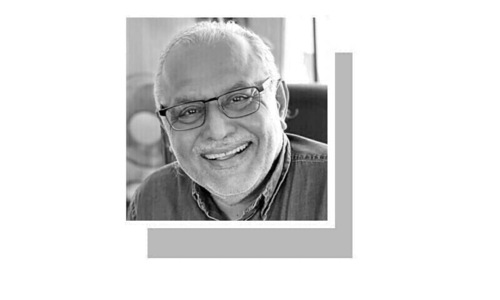I AM writing this in response to Dr Khalid Hassan Mahmood's letter, 'Of gender equality in medical colleges' (May 6). The writer's view regarding women doctors and students was biased and, to a certain extent, wrong. Instead of concentrating on the actual problem as to why fewer male students opt for medical profession, the writer put the whole blame on women doctors.
Here are the reasons why there are fewer male students in medical colleges
1. Male students have a lot of other career opportunities, e.g. huge sub-field of engineering, business administration, economics and communications.
2. Medical studies are time-consuming. By the time a medical student finishes his house job, he has already spent an average of seven years. And still he has to do specialisation, which will take another seven years. After that, he is in a starting position for a proper career. By this time his other colleagues at FSC level may have established themselves well or may have gained a lot of practical experience.
3. Moreover, when doctors enter into government service, they are treated equal to other grades 17 and 18 government employees who are simple BA and MA. There are no proper job structures, promotions, pension plans, etc., according to their tedious studies and professional skills. Even with these problems, there are fewer government jobs for doctors. This is a big reason that most of our male doctors opt for other countries.
4. Now if we compare the state of affair for girls, we find only two professions socially and culturally acceptable in Pakistan, those are medicine and teaching. So a large number of girls opt for these professions.
5. I would name this phenomenon as 'vacuum space' or 'male brain drain' that Dr Khalid Hassan Mahmood is observing. Girl medical students are only filling that vacuum in medical colleges. It has nothing to do with gender equality etc.
It would be better for us to have a broad vision of the problem, and then say anything. If women doctors are achieving something purely on their own merit, they should not be discouraged. And no false decision should be made on whims because male students are no minorities to have a quota system. They have to come in the open merit and compete.
Moreover, Dr Mahmood had made allegation that women doctors do not do duties. I would like to say here that generally women doctors perform 24-hour duties, and specially work at night in gynea and obstetrics. They have no break on holidays also.
My question is that as no male doctor usually performs duties in BHUs and far-flung areas, shouldn't we make a law that no male should be admitted to medical college?
So, think about what you are talking.
DR RAHEELAH AMIN
Assistant professor, Community Medicine, Khyber Girls Medical College, Peshawar
(II)
THIS is apropos of Dr Khalid Hassan Mahmood's letter, 'Of gender equality in medical colleges' (May 6). The writer suggests that a quota for male students in medical colleges should be fixed.
The definite drift in male-female ratio for admission to medical institutes is not only seen in Pakistan but a significant rise in the number of female students has been noticed by academicians in Europe and America also (Duglas J. Mathesen 2008 Midwast Surgical Association lecture vide American Journal of Surgery (2009) 275-8).
The phenomenon simply cannot be reversed by increasing the quota for male students in medical colleges. In case the competition decreases, this will further plummet the quality of medical education and will also lead to gender bias.
The important question is, why do medical graduates (male or female) digress from profession? Though some female doctors after marriage leave the profession, to some extent they remain at least a source of medical advice to their families.
Most of the male doctors leave the profession for acquiring lucrative position in management, financial and political institute. At present quite a good number of parliamentarians, DMG and financial professionals are medical doctors.
A medical graduate is a double bachelor (with one year house job) and yet in the market he competes with a single graduate of arts, science, commerce or economics for the salary and emoluments which are much little compared to his/her qualifications and time spent in education,
In case he/she wants to go for post-graduate qualification, the course is tedious, expensive and spans usually over six to eight years. By that time their class fellows are well settled in society, for relatively less effort of shorter duration.
Remedial measures should include determination and prioritisation of health needs of the country, especially in less developed areas. Also, there should be provision of attractive and respectable emoluments and job security for medical graduates.
I think these measures can to some extent solve this issue in our country.
PROF GHULAM ASGHAR CHANNA
JInnah Postgraduate Medical Centre
Karachi










































Dear visitor, the comments section is undergoing an overhaul and will return soon.